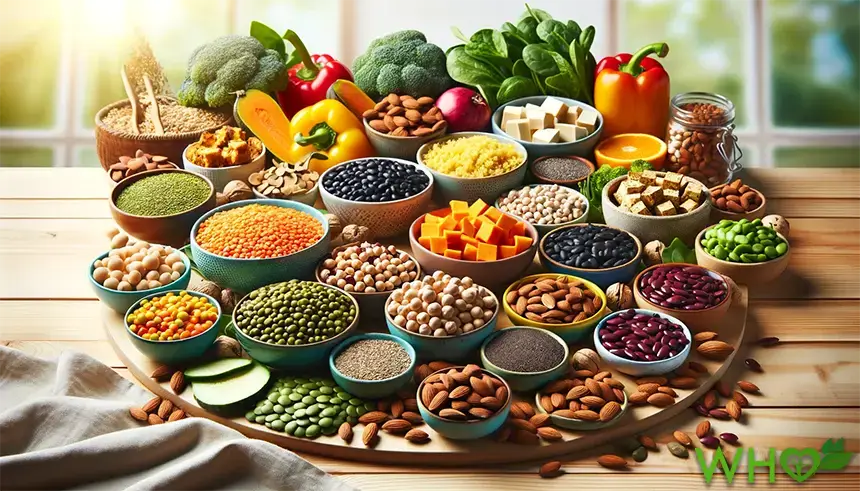One Vital Ingredient That Is Very Necessary For Preserving Health And Well-Being Is Protein. Many Body Processes, Including Muscle Development, Immune System Function, Healing, And The Synthesis Of Hormones And Enzymes, Depend On It. Inspired By Wellhealth Organic, This Page Explores The Value Of Protein, Where It Comes From, And Its Advantages.
Describe Protein:
Together With Carbohydrates And Lipids, Protein Is One Of The Three Macronutrients Absolutely Necessary For Human Health. Comprising Amino Acids, Protein Is Essential For Tissue Development, Repair, And Maintenance. While Some Amino Acids, Also Referred To As Essential Amino Acids, Must Be Acquired From Diet, The Body Can Synthesis Several Others.
Kinds Of Proteins:
1. Complete Proteins: One Finds All Nine Of The Necessary Amino Acids In Enough Proportions In Complete Proteins. Among The Animal Products Are Meat, Dairy, Eggs, And Some Plant Sources Include Quinoa And Soy.
2. Incomplete Proteins: Two Incomplete Proteins Are Those Devoid Of One Or More Critical Amino Acids. Usually Found In Plant Foods Such Beans, Lentils, Nuts, And Seeds Are They Are Also One Can Establish A Full Protein Profile, Nevertheless, By Combining Several Plant Sources.
Value Of Proteins In The Diet:
Muscle Quality:
Muscle Tissues Are Built And Repaired From Protein. Physical Activity—Especially Strength Training—Increases The Body’s Demand For Proteins. For Athletes And Individuals With Active Lives, Enough Protein Helps Muscles Develop And Heal.
Diet Control:
Including Meals High In Proteins Helps Control Weight. Because Protein Has A Greater Thermic Effect Than Fats And Carbs, The Body Must Use More Energy Breaking Down Protein. Protein Also Helps Control Hunger Hormones, Therefore Encouraging Sensations Of Fullness And Lowering Total Calorie Consumption.
Immune System Action:
A Functional Immune System Depends On Enough Protein Consumption. Antibodies And Immune Cells That Fight Against Infections And Disorders Support The Body By Means Of Proteins. Enough Protein Can Improve Immunological Response, Particularly In Stressed-Out Or Sick Situations.
Hormonal Harmony:
Production Of Hormones Depends Critically On Proteins. Hormones Including Growth Hormones, Glucagon, And Insulin Are Proteins That Control Many Body Processes Including Metabolism And Development. Maintaining A Balanced Diet High In Protein Can Help To Promote General Body Operations And Hormonal Wellness.
Suggestive Protein Consumption:
Age, Sex, And Activity Level All Affect The Advised Dietary Allowance (RDA) For Protein. Adults Should Typically Go For 0.8 Grams Of Protein Per Kilogram Of Body Weight. Those Who Are Nursing, Pregnant, Or Physically Active, Nevertheless, Could Need More.
Age And Activity Level Protein Requirements:
• Sedentary Adults: 0.8 Grammes Per Kilogramme Of Body Weight.
• Active Adults: Based On Their Degree Of Exercise, 1.2 To 2.0 Grams Per Kilogramme.
• Older Adults: Often Advised At Between 1.0 And 1.2 Grams Per Kilogram, Higher Protein Intake May Help Stop Muscle Loss.
Sources Of Protein:
Source Of Animal-Based Protein:
1. Meat: Excellent Sources Of Complete Proteins Are Meat Including Chicken, Beef, Hog, And Turkey.
2. Fish: Salmon, Tuna, And Sardines Among Other Fish Offer Not Just Protein But Also Omega-3 Fatty Acids.
3. Dairy: Rich In Protein And Supplying Calcium For Bone Health Are Dairy Products Including Cheese, Yogurt, And Milk.
4. Eggs: Fourth, Eggs: Eggs Are A Flexible Source Of Protein; They Include Several Vitamins And Minerals As Well As All The Basic Amino Acids.
Vegetable-Based Protein Sources:
1. Legumes: Excellent Sources Of Protein And Fiber Are Legumes—Beans, Lentils, And Chickpeas.
2. Nuts And Seeds: Healthy Fats Paired With Protein Abound In Almonds, Walnuts, Chia Seeds, And Flaxseeds.
3. Whole Grains: Along With Necessary Carbohydrates And Fibers, Whole Grains Such Quinoa, Brown Rice, And Oats Have Protein.
4. Tofu And Tempeh: Popular In Vegetarian And Vegan Diets, Tofu And Tempeh Are Soy-Based Foods Heavy In Protein.
Advice On Including Protein Into Your Diet:
1. Start Your Day With Protein: Start Your Day With Protein By Include Greek Yogurt, Eggs, Or Smoothies Using Protein Powder.
2. Snack Wisely: To Keep Energy Levels All Through The Day, Choose Snacks Like Almonds, Seeds, Or Protein Bars.
3. Balance Your Meals: Try To Incorporate, From Animal Or Plant Sources, A Source Of Protein In Every Meal.
4. Experiment With Plant Proteins: If You Eat A Vegetarian Or Vegan Diet, Look At Several Plant Protein Sources To Guarantee Enough Intake.
Stories & Mistakes Regarding Protein:
Myth 1: Diets Heavy In Proteins Are Bad:
Although Some People Think Diets Heavy In Proteins Could Damage The Kidneys, Studies Show That For Healthy People, High Protein Intake Is Harmless. Pre-Existing Renal Sufferers Should See Medical Experts For Individualised Advice.
Myth 2: You Cannot Get Enough Protein From Plants:
Many Believe That Animal Products Alone Contain Enough Protein. Still, Many Plant-Based Dishes Provide Enough Protein. Combining Several Sources Guarantees Consumption Of All The Necessary Amino Acids.
Myth 3: Protein Supplements Are Absolutely Necessary:
Protein Supplements Are Not Necessary For Everyone Even If They Can Be Handy. Whole Foods In A Well-Balanced Diet Can Supply All Required Nutrients Without Calling For Supplements.
Final Thought:
A Basic Nutrient With Several Functions In Preserving Health Is Protein. Knowing Its Value, Origins, And Suggested Consumption Will Let People To Choose Their Diets With Knowledge. Whether Your Priorities Are General Health, A Hectic Career, Or Athletics, Making Sure You Get Enough Proteins Is Absolutely Vital. Investigating Several Protein Sources And Including Them Into Your Regular Meals Will Help Your Body Meet Its Needs And Encourage Best Health. See Wellhealth Organic For Further In-Depth Analysis And Tailored Dietary Advice.

